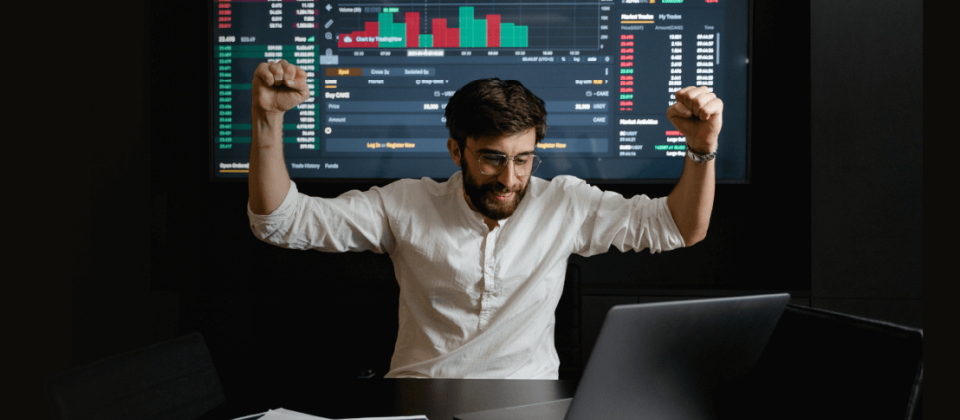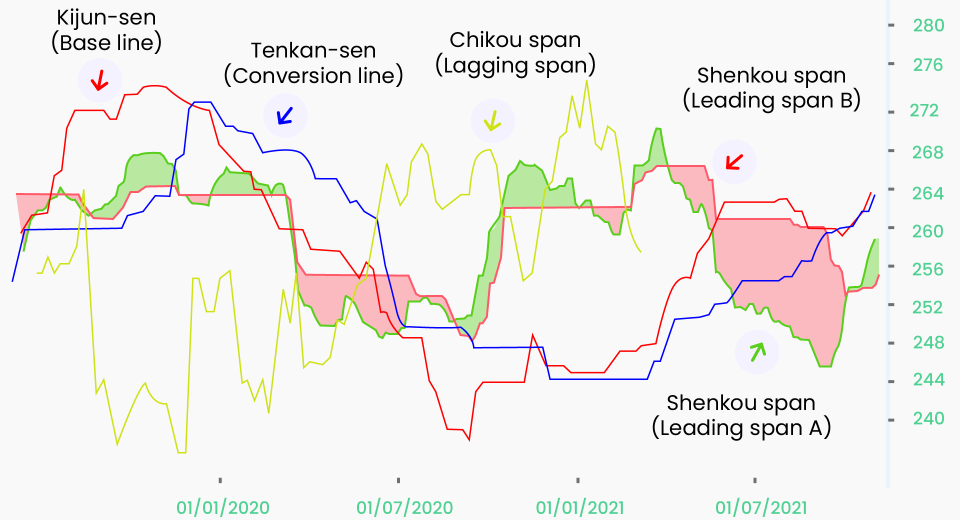Annually, 1 in 5 heavy traders outperforms the markets. Does it seem too low? It’s not, considering only 0.1% traders trade consistently. As many successful people in life have learn, one cannot profit from any endeavour without consistency. Beginners must treat trading as a business, a wealth-creation method that demands time, patience, and persistence. For those dedicated to improving their trading experience, here are six tips to help you improve your profitability.
#1 – Discover Your Trading Persona
There are many trading instruments and trading styles. You develop your trading strategy only after assessing what fits your personal risk appetite and trading goals. Firstly, you need to choose the asset class to begin trading with. You can choose from forex, commodities like oil and coffee, precious metals, indices and stocks. Trading them directly or via derivatives like CFD trading is another decision to be made.
Secondly, the frequency of trading needs to be determined. Some traders are comfortable with opening two positions a month, while others trade more frequently, opening five positions a day, or even 10 positions within a few minutes. Identifying what suits you requires some research and practise.
You can use a demo account to trade different markets at varying frequencies to find out what suits you the most.
#2 – Develop a Trading Psychology
This is one of the toughest parts, mainly because money is involved. Keeping emotions out of the decision-making process can be difficult for novice traders, as they are not acclimatised to handling the surprises that the financial markets can sometimes present. The following strategies help build a trading mindset:
Practise Trading Systematically
This means never leaving room for subjective decision making. Trading is all about numbers and calculations. You need to have concrete numbers for opening and closing positions, accepting or rejecting signals, the amount of capital to commit to a trade, and even the risk you can take on. Write down your answers to these trading decisions. If the actual numbers align with your targeted numbers in terms of risk and reward, you can go ahead. If they don’t align, then consider looking for a new trading opportunity.
Cap Time and Money
Overtrading can prove as troubling as forgoing trading opportunities. You can set an alarm clock and a hard spending limit to avoid this. Trading for long hours, against your trading persona, eventually clouds judgment and leads to wrong decisions. Often revenge trading or FOMO ‘fear of missing out’ trigger poor trading decisions. Keeping position sizes at only 1% of your trading capital can help protect you from losses spiralling out of control.
Have an Alternate Source of Earning
People generally function better when not under pressure. Confidence in trading does not stem from being able to make profits with every trade. This doesn’t happen even to the most seasoned traders. Confidence comes from practise as well as the knowledge that your life does not depend on the profits you make from trading. For a beginner, trading should be a part-time activity. As you gain experience, you can increase the time you invest. If the capital you commit to trading does not meaningfully impact your financial situation, you will be under less pressure when making trading decisions.
#3 – Accept Trading Tips Only from Trusted Sources
Gazillion of tips are available for free and there are tippers who claim they can help you make quick profits. Social media is flooded with “pump and dump” tips. One way to recognise an untrustworthy tipper is that they will always share information about what and when to buy and never about when to exit the trade. The golden rule for trading is to recognise the exit points before the entry points.
Rely on your fundamental and technical analysis techniques to identify trading opportunities. Trusted brokers also share signals that have been determined by experts. You can use these to power your own analysis. If you need more help to get started, you could try copy trading.
#4 – Steer Clear of Averaging Down
A tendency has been observed among traders to sell assets that have increased in value, while holding assets that have declined in value. This behaviour is so common that it has a name – the disposition effect. While trading, it is easy to get caught up with a prediction that you’ve made. Traders who bought an asset with expectations of its price rising, keep holding onto it even when the price is falling, with hopes of their prediction playing out in time. Some traders also consider a decline in prices a good opportunity to buy more of the asset, as they are convinced their initial prediction is correct. So, apart from holding onto the asset, they continue adding to it. This is called averaging down.
This is a rookie mistake. As a trader, you need to know when your prediction went wrong. The best way is to set up stop loss orders to ensure a timely and calculated exit. This prevents losses from piling up when speculations go wrong.
#5 – Consider Opportunities in Both Rising and Falling Markets
CFD trading allows you to speculate in both directions. The ‘buy low, sell high’ motto makes traders seek opportunities to go long. However, opening short positions can be an equally exciting trade setup. During periods of high volatility, seasoned traders often open positions in both directions, to hedge some of the risk in their preferred direction. Also, this opens a whole new set of trading opportunities, increasing the choices available.
#6 – Account for Fees and Taxes
Many traders set their profit targets after considering only the capital they have put in. However, your profitability is impacted by all the costs involved in trading. This may include spreads and fees. It’s a good idea to trade with a broker that offers tight spreads and commission-free trading, to increase your chances of trading profitably. It’s also important to know how trading income is taxed in your country. You must also take this into account when calculating your profit target.
To Sum Up
- Discover your trading persona.
- Develop a trading psychology to avoid making decisions based on emotions.
- Consider trading opportunities in both rising and falling markets.
- Avoid taking suggestions from untrustworthy sources.
- Consider all trading costs when setting your profit targets.
Disclaimer:
All data, information and materials are published and provided “as is” solely for informational purposes only, and is not intended nor should be considered, in any way, as investment advice, recommendations, and/or suggestions for performing any actions with financial instruments. The information and opinions presented do not take into account any particular individual’s investment objectives, financial situation or needs, and hence does not constitute as an advice or a recommendation with respect to any investment product. All investors should seek advice from certified financial advisors based on their unique situation before making any investment decisions in accordance to their personal risk appetite. Blackwell Global endeavors to ensure that the information provided is complete and correct, but make no representation as to the actuality, accuracy or completeness of the information. Information, data and opinions may change without notice and Blackwell Global is not obliged to update on the changes. The opinions and views expressed are solely those of the authors and analysts and do not necessarily represent that of Blackwell Global or its management, shareholders, and affiliates. Any projections or views of the market provided may not prove to be accurate. Past performance is not necessarily an indicative of future performance. Blackwell Global assumes no liability for any loss arising directly or indirectly from use of or reliance on such information herein contained. Reproduction of this information, in whole or in part, is not permitted.





